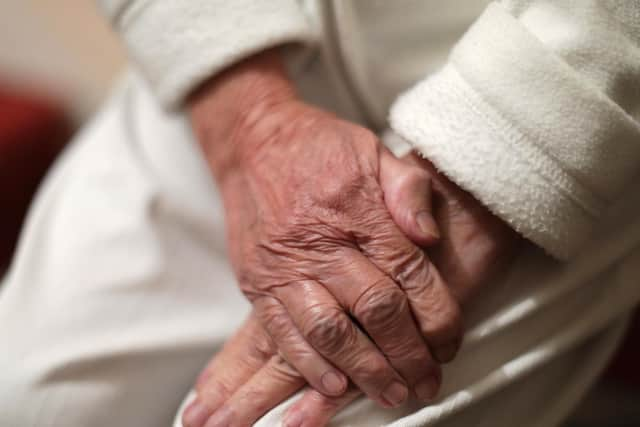How to make sure you and your partner's plans for retirement match up - Sarah Coles
One in four couples have never discussed their retirement plans with one another; and if you’ve never really talked about it, there’s always the risk that your international travel plans might interfere with their hope of spending every Wednesday looking after the grandchildren.
We did a piece of research at the end of last year and asked people what they were most looking forward to in retirement: women and men gave very different answers. More than one in three women mentioned spending more time with their partner, compared to just over one in four men.
Advertisement
Hide AdAdvertisement
Hide AdAlmost one in five women said they were looking forward to caring for grandchildren, compared to around one in ten men. And women were roughly twice as likely to want to volunteer too.


You don’t have to want exactly the same things as your partner in retirement, and you don’t need to spend every waking second together. However, if you haven’t talked about your retirement priorities and dreams, you could run into real difficulties.
The conversation shouldn’t just cover what you want to do in retirement, but how and when you want to stop work. If one of you wants to work later in life, do you want a two-stage retirement, where one of you finishes work and has solo adventures for a few years, or would you rather meet in the middle? If one of you wants to scale back into part-time work as they approach retirement, will the other need to increase their hours to compensate for the lost income?
You also need to think about where you want to live – both the area and the property. The right place in your active 60s may look very different from the right place in your 80s, but you need to think carefully about the right time to make the move. There’s no right or wrong answer for any of this, there’s just the opportunity to find a solution that suits you both.
Advertisement
Hide AdAdvertisement
Hide AdTalking about these things as early as possible doesn’t just give you time to find the right answer, but the chance to plan for it financially too. If one of you is saving for a retirement of travel and adventure, and the other for staying at home with a nice cup of tea, you might be willing to compromise by travelling the world together, but your finances may not stretch to it if you realise the problem too late.


Many couples look at their joint income, and plan together, which can be a sensible way of ironing out any lack of financial equality. This means being completely clear about how much income you need between you in retirement, how much you both currently have squirrelled away, and how you’re going to close the gap.
This will enable you to grow old together, with the right plans in place and a sensible income.
Unfortunately, you also need to consider what will happen if your plans go awry. Nobody likes to dwell on the negative in life, but more than two in five marriages end in divorce, and the others end in death. So while we live in hope of somehow not having to deal with either of these things, we need to plan for them.
Advertisement
Hide AdAdvertisement
Hide AdIn the event of a divorce, would you be able to get by on your pension alone – and would your partner? What would it mean if you needed to share your savings with them? Running two single households is more expensive than one joint one, so consider how you would bridge the gap.
If you‘ve been prioritising your partner’s pension – or yours – it might make you consider the merits of you each having a pension of your own. Sometimes it makes less sense from a tax planning perspective: if one of you is a higher rate taxpayer and the other a basic rate taxpayer it may feel more sensible for the higher earner to make the contributions and get the most tax relief.
You may weigh all of this up, and decide to stick with unequal pension arrangements, but it will highlight how important it is to get the right pension agreement if you were ever to divorce.
You also need to think about what would happen if your partner died. It may be a tough issue to raise with your other half, but you need to know if you’d be entitled to anything from their pension or any life insurance. It’s difficult to ask this, so it can be easier to investigate what your partner would get if you were to die, and share this information first.
Advertisement
Hide AdAdvertisement
Hide AdThat way they can understand that it comes from a place of love and isn’t part of a sinister plot.
There are some thorny issues to work through, but once you’ve come to an agreement, hopefully you can both have the retirement you want – whatever it looks like.